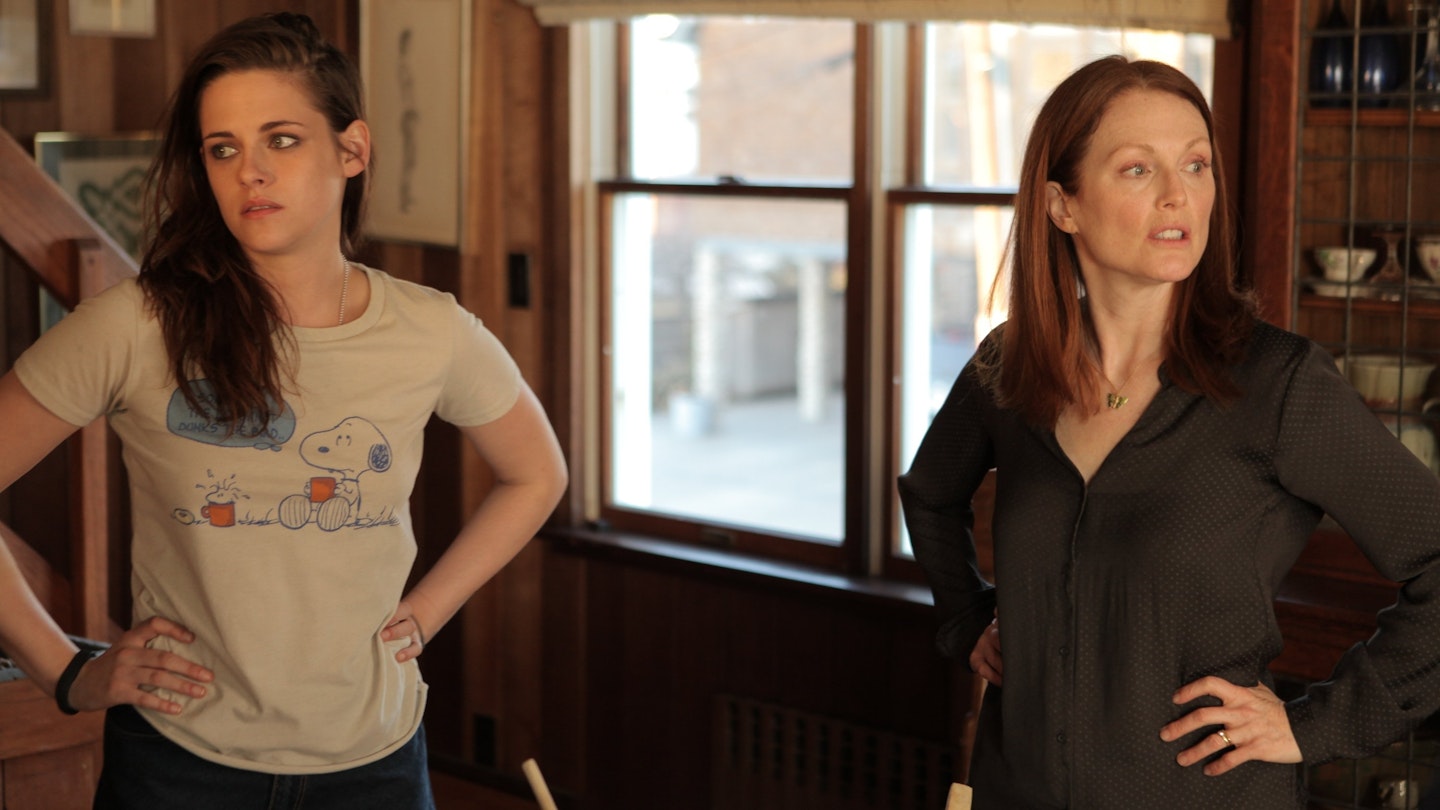Making a film about dementia must be daunting: virtually every film to tackle the subject (Iris, Away From Her and Amour, to name a few) has enjoyed critical acclaim, while the actor playing the sufferer is showered with awards. Julianne Moore (arguably the only actress alive who could give La Streep a run for her money) looks set to continue the trend, winning a Golden Globe (her second) and earning her fifth Academy Award nomination for her note-perfect performance as the linguistics professor who, just days after celebrating her 50th birthday with her husband (Alec Baldwin) and three grown-up children (Kristen Stewart, Kate Bosworth, Hunter Parrish), begins to exhibit symptoms of early on-set Alzheimer’s disease. It’s rare for this debilitating form of dementia to afflict someone relatively young, but for Alice the prognosis is even starker: not only will her brilliant mind decay over the coming months, there is a 50/50 chance that her children have inherited the gene, and may in turn pass it onto their own offspring. Alice has no way of seeing the disease coming, her own mother having been killed in a car accident when she was young.
Co-writer/directors Wash Westmoreland and Richard Glatzer, the British duo behind 2006 Sundance award-winner Quinceañera, adapt Lisa Genova’s first-person novel with sensitivity and scalpel-sharp precision: there isn’t a single false note in the film, and only one redundant scene (Stewart doing an am-dram Chekhov play). It even has a few advantages over the book, cleverly representing Alice’s deteriorating brain functions cinematographically, by means of blurred images, and a camera that whirls about Alice as she stands at the epicentre of a confused maelstrom. At the film’s own centre is Moore’s sympathetic, heartfelt performance, which tracks Alice’s journey from momentary forgetfulness to muddled haze without it ever looking like acting.
Without the true-life elements of, say, Iris, or the intriguing premise of Away From Her, Still Alice is essentially a step-by-step document of its protagonist’s mental decay, and it goes to some pretty dark places, such as when Alice uses her laptop camera to film her own suicide plan or wishes she had cancer instead of Alzheimer’s (“because then I’d have something to fight”). It even ventures into murkier moral waters when Alice’s husband John, played with reliable sturdiness by Alec Baldwin, declines to take a year’s sabbatical to spend with Alice; whether this is for selfish reasons, or because John knows that life, and his career, will ultimately go on, goes unanswered.
To end the film on an optimistic note would be a cheat, given that Alzheimer’s is incurable and its effects irreversible. But by showing the positive nature of a life well lived, and a woman well loved, Westmoreland and Glatzer give us the next best thing: a stirring, thought-provoking and achingly human story anchored by an outstanding performance, guaranteed to leave a lump in the throat.






